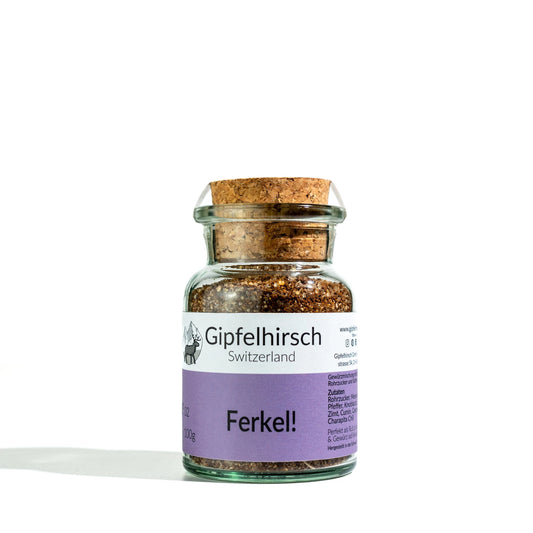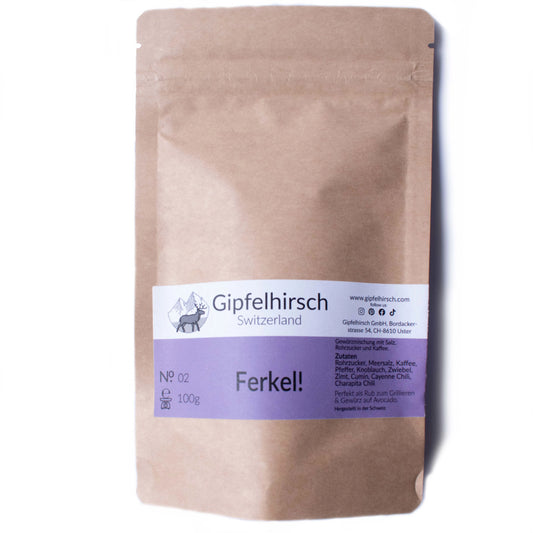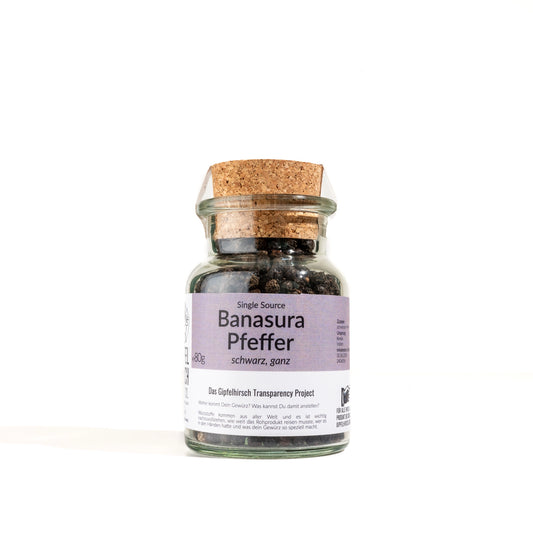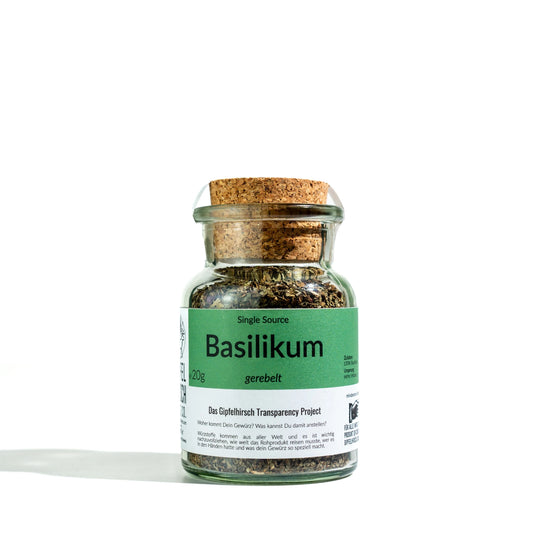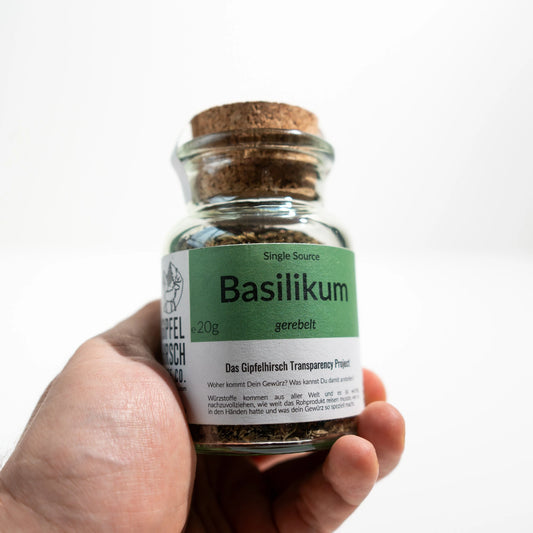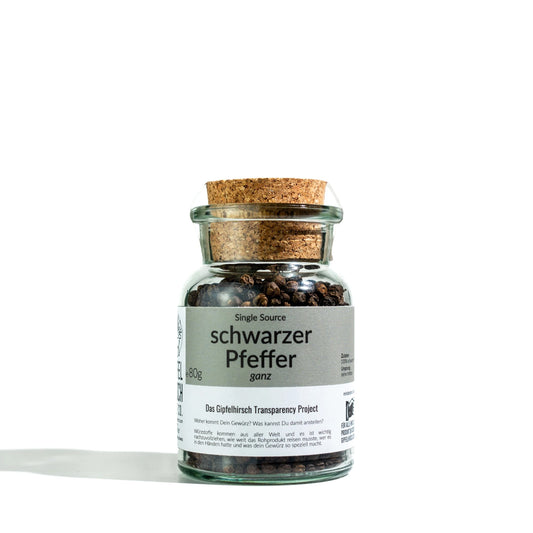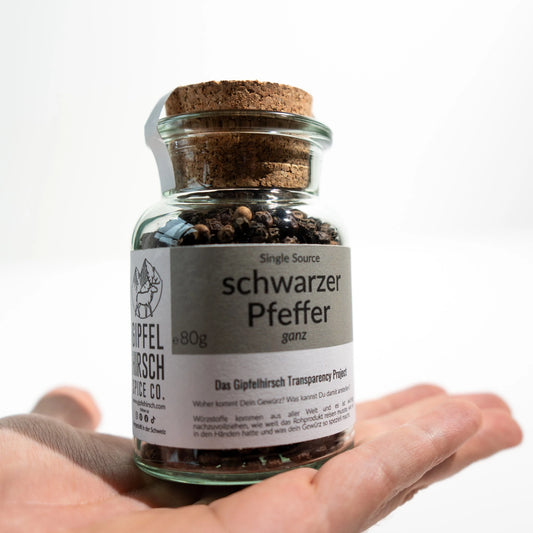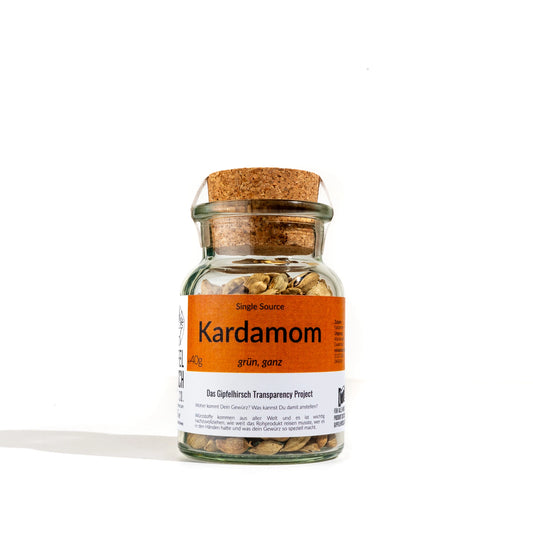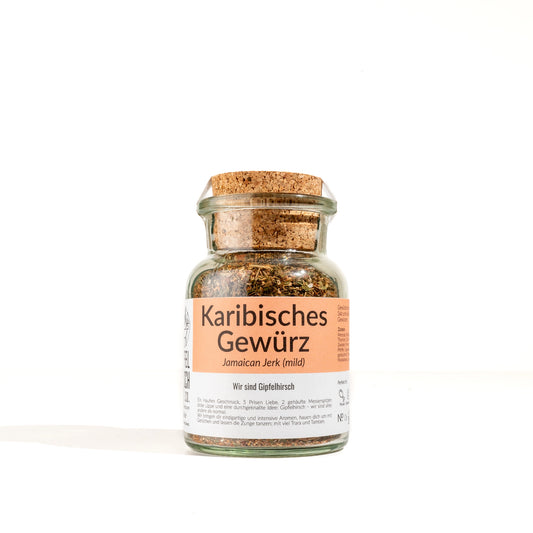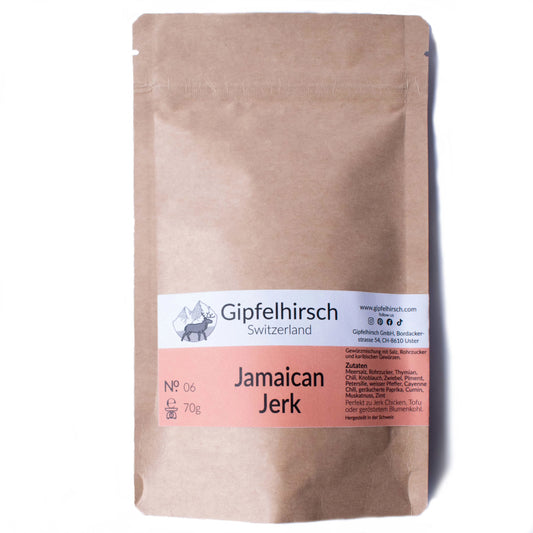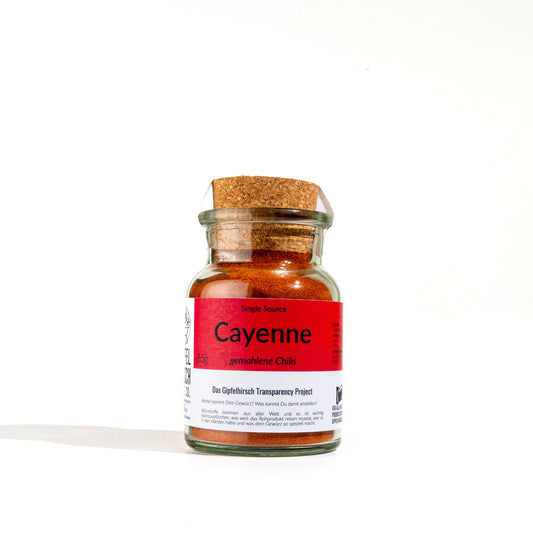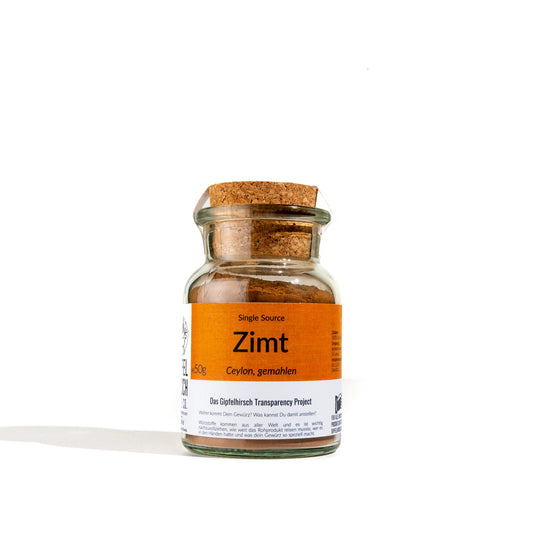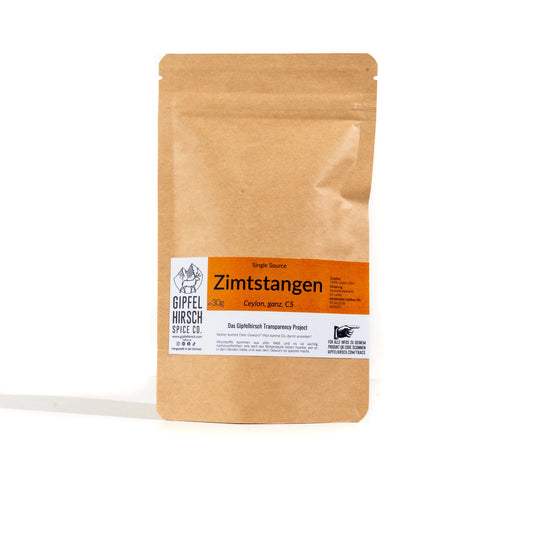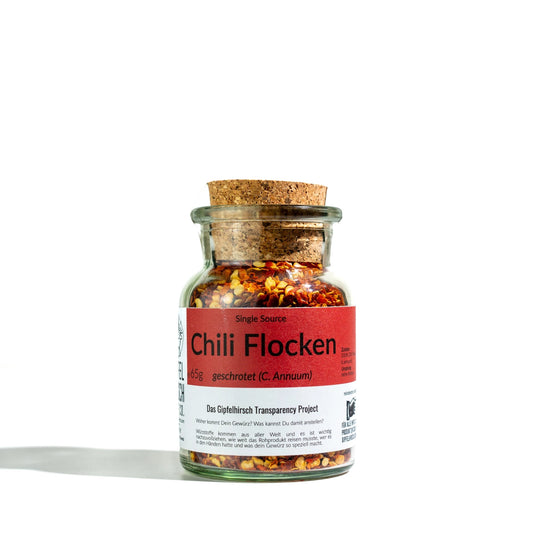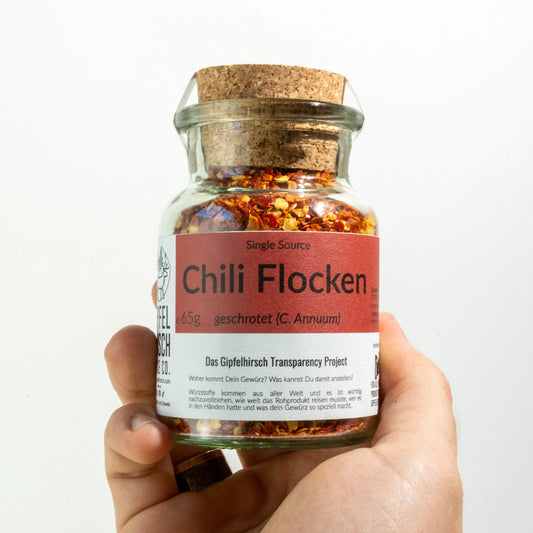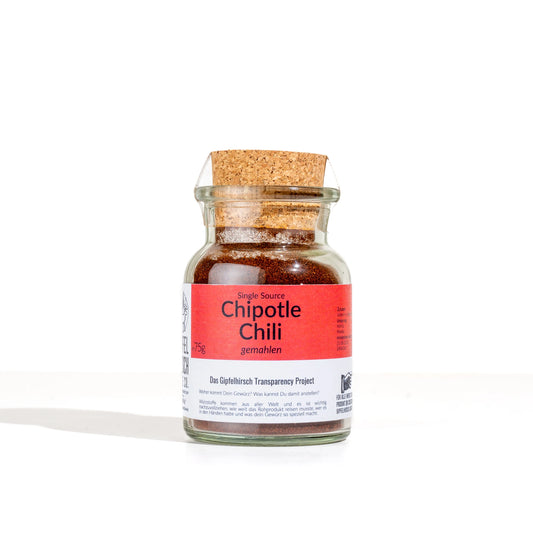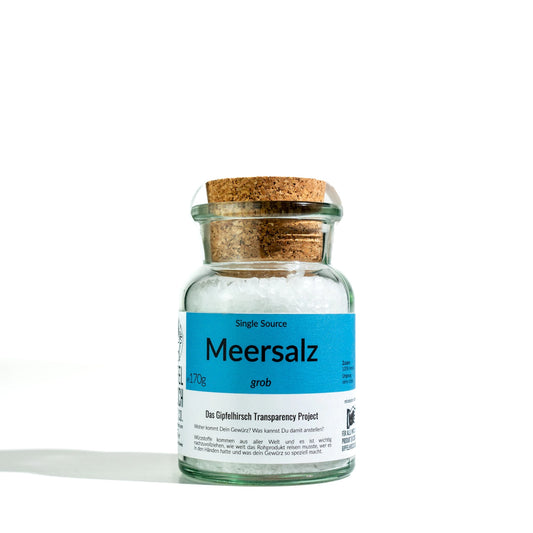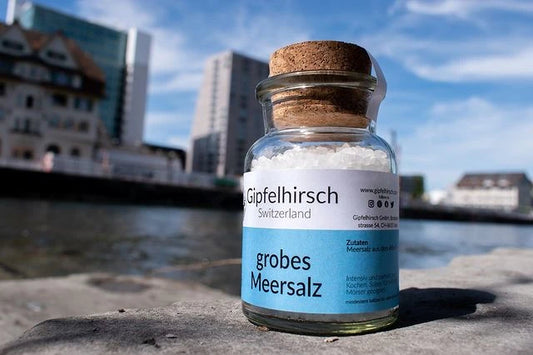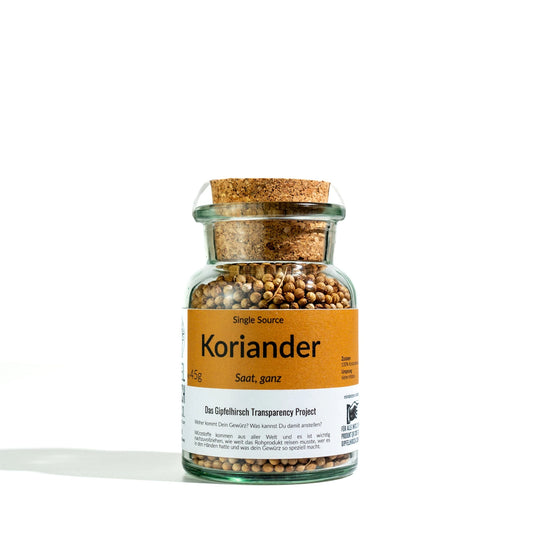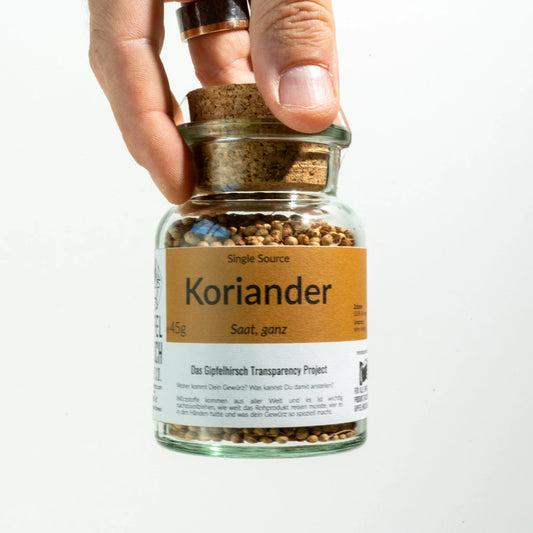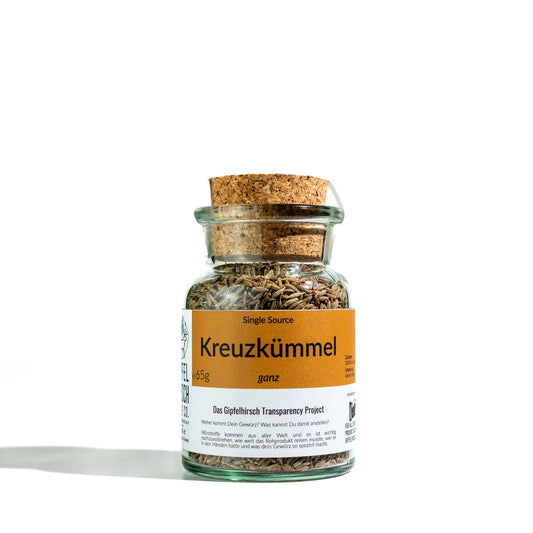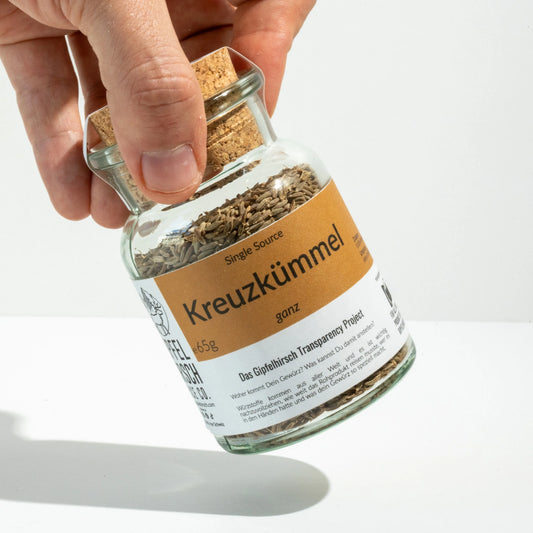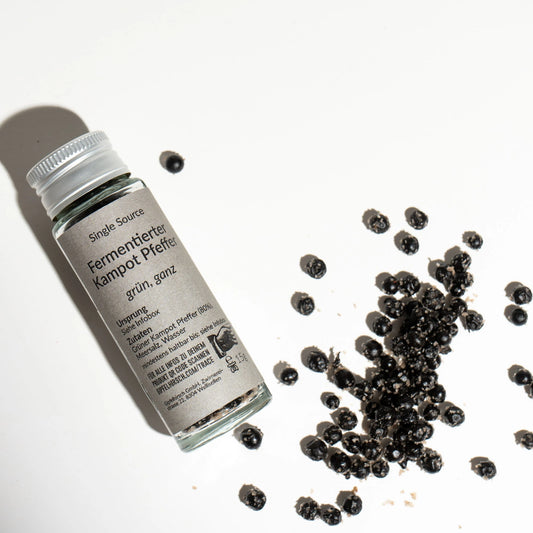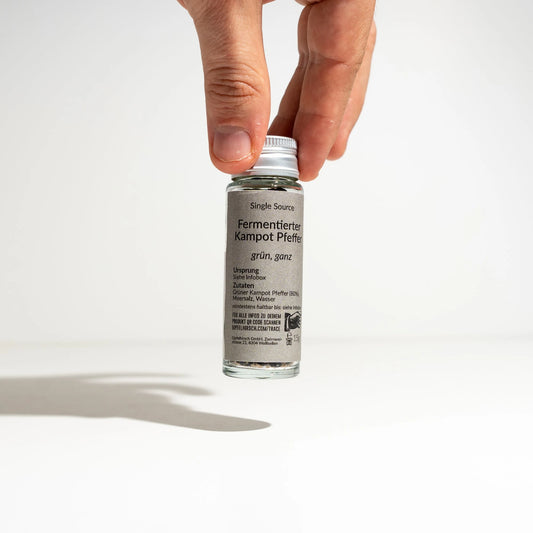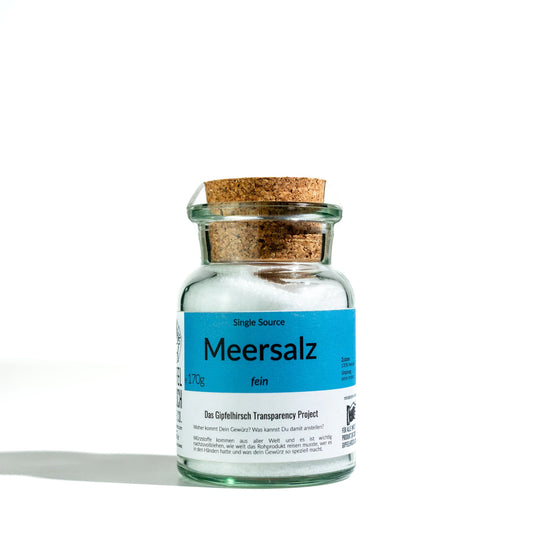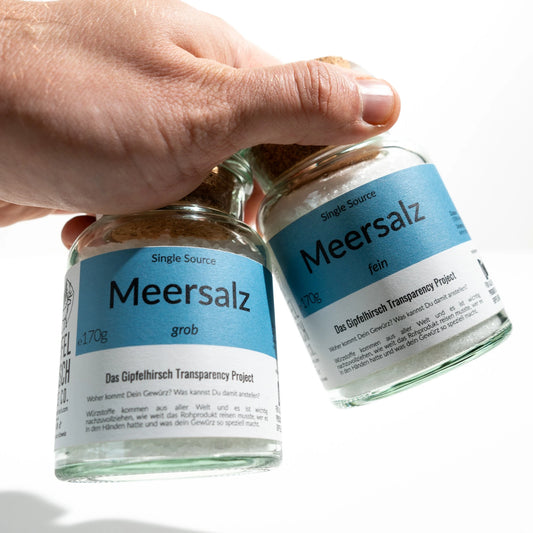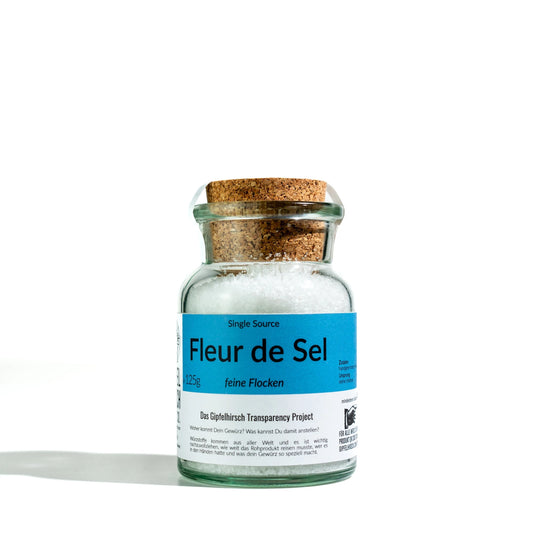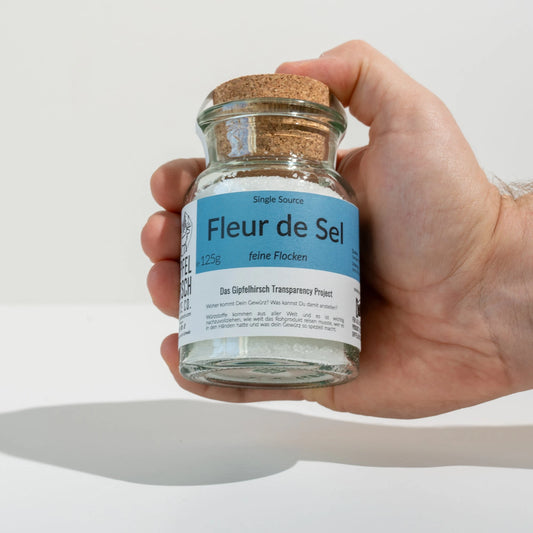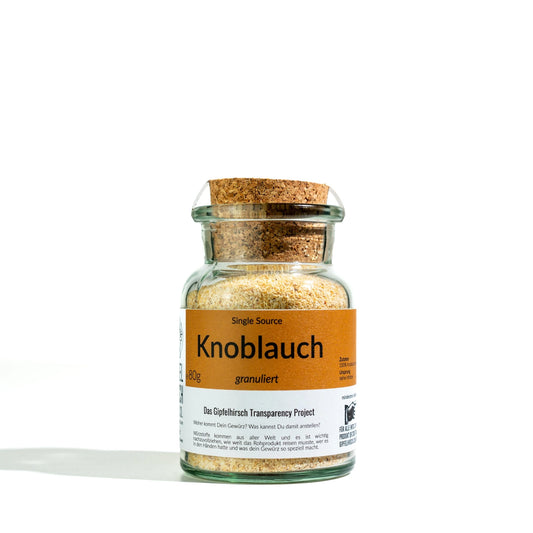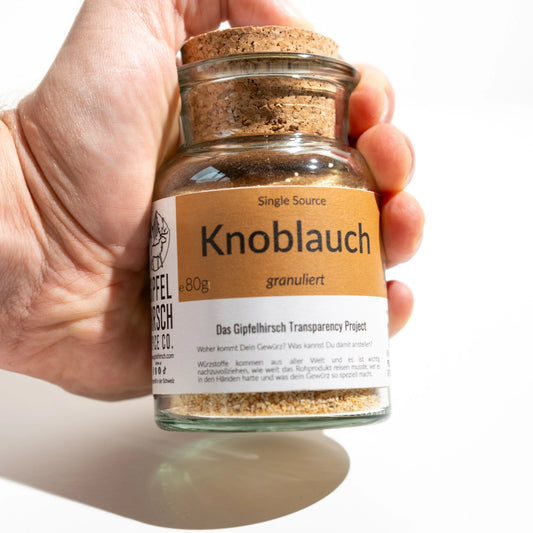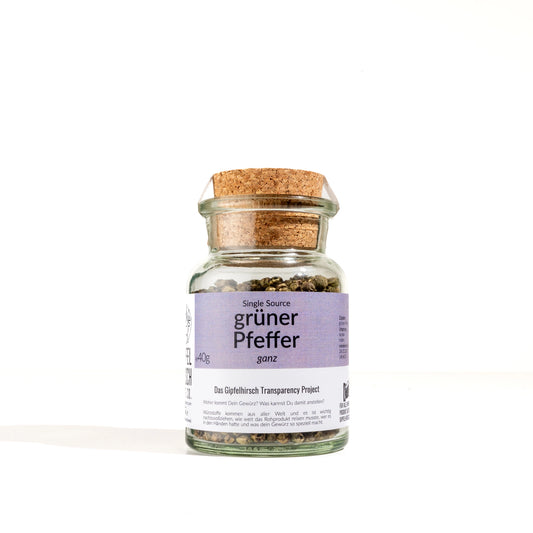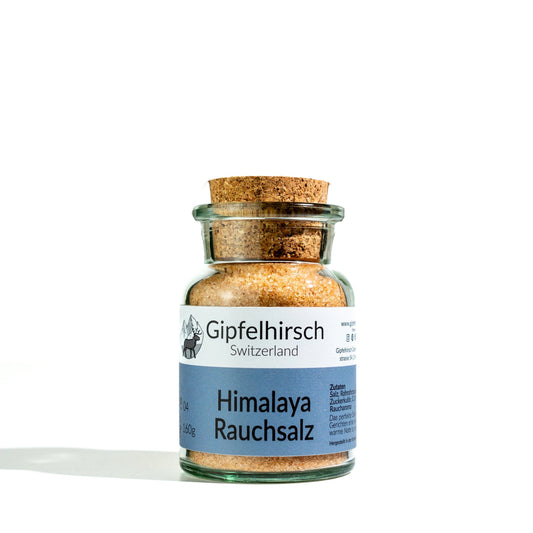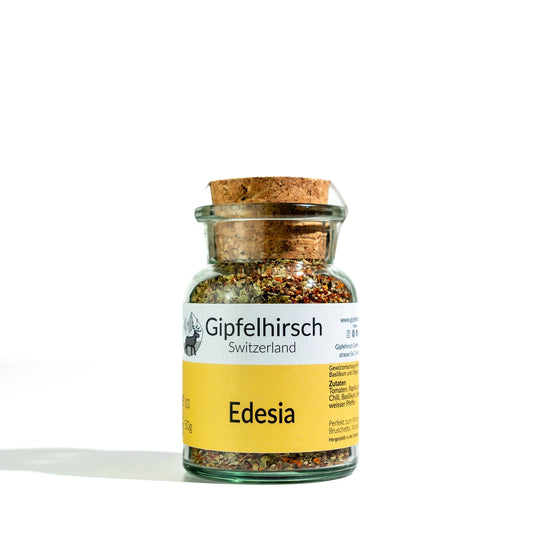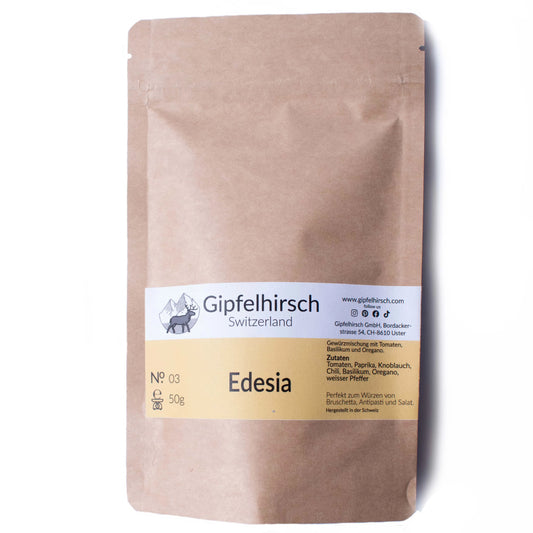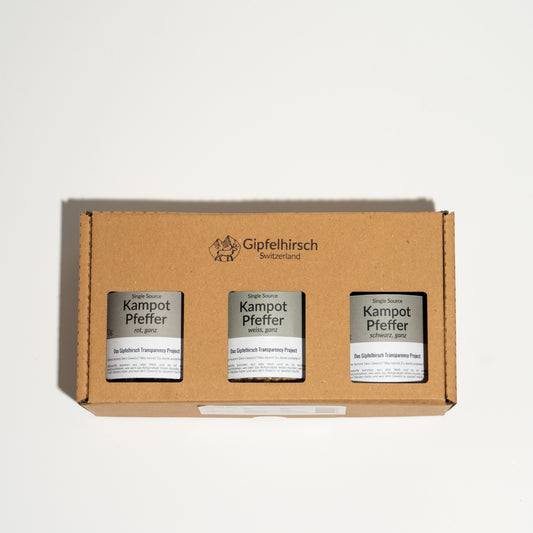
Kampot Pepper, black
whole
Your Batchnumber:
2309100

Kampot Pepper, black
whole
Your Batchnumber:
2309100
About
The rare black Kampot pepper has a fruity and spicy taste. The fermented and dried pepperberries bring a noble touch to every dish. This intense pepper goes best with red meat and salads, but is great in soups and sauces. We recommend always freshly grinding the pepper - this keeps the grains fresh and the taste incomparable.
Origin
Chamka Bei Village, Cambodia
Best Before
28 Feb 2026
Weight
80 g
Form
whole
Food Matches
Black Kampot Pepper makes steaks, roasts and dark sauces and fresh salad dressings a pleasure. With its pleasant, finely spicy spiciness and minty aroma, black Kampot Pepper is of the finest papper varieties in the world. Freshly ground from the peppermill it is a fantastic taste experience.
Aromagroups
Piperin, Pinen, Limonen, Myrcen
Chamka Bei Village, Cambodia
data-pie='{
"percent": 75,
"colorSlice": "#BF360C",
"colorCircle": "#f1f1f1",
"fontWeight": 100
}'
17993 km
Footprint
8.2 grams of CO2*
*How do we calculate the CO2 footprint?
Our CO2 footprint calculation is only based on the transport of the packaging and product. Please keep in mind that these values are an average approximation based on the EN16258 standard. For more information about emissions calculations, check carboncare.org
The Container

Our glass jars are manufactured in the north of Germany. They are made from a specific soda lime glass that is designed for the food and beeverage industry.
The Closure

Our corks originate from Portugal are are a mixed press cork, which means that offcuts and otherwise unusable cork is combined into a food-safe closure for our jars.
The Label

Our labels are made from cane sugar fiber (95%) and 5% hemp and linen. The matt labels are printed with organic ink.
The Farm & Farmer
In 2017, we purchased additional land in close proximity to Sopha Phal's farm to be able to grow another generation of pepper. We came a lot closer to our goal of paying the workers on the pepper farm an above-average wage. We were able to appoint a long-time harvest helper from Sopha Phal, who previously earned his money as a day laborer, as a foreman. Pu Maneth is reliable and also knows what is important in traditional pepper cultivation. For him and his family, the job as a foreman means security and the opportunity to provide his children with a better education. He moved with his family into newly built accommodation on the new site. For us, it was basically the birth of Uncle’s Pepperfarm.
Uncle's Pepperfarm →



